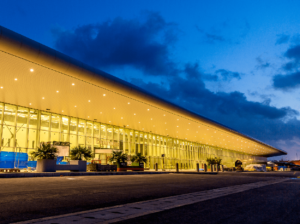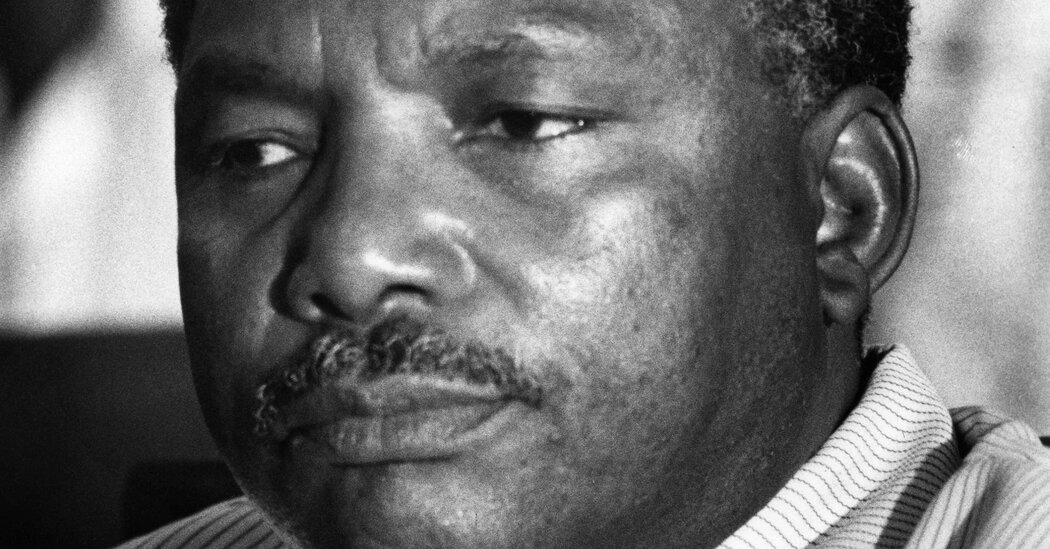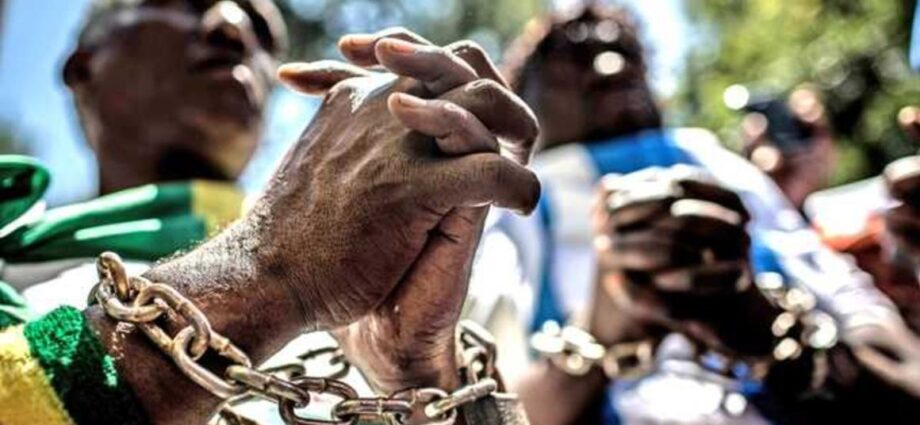By VALERIE KOGA
Kenya and Tanzania have agreed to strengthen border security through cooperation to weed out transboundary crime, including human and drug trafficking, terrorism and poaching.
Tanzania’s President Samia Suluhu and Kenya’s President William Ruto made the announcement at a press briefing in Dar es Salaam on Monday following bilateral talks.
Read: Human trade is alive and thriving across East Africa
Also read: Burundi, South Sudan: East Africa’s weak link in human trafficking
“We have agreed to enhance the cooperation that exists between our security agencies so that we can share information, strategies, and be able to deal with these challenges to secure our countries and region,” President Suluhu said.
President Ruto said, “We have agreed to fight crime, human trafficking, drug trafficking, and the rest of the transboundary crimes that are making our region uncompetitive and giving us a bad name.”
Human trafficking has been a menace and has tarnished the two countries’ image globally, said President Suluhu, adding that they are working to curb the crime across Kenyan and Tanzanian borders.
“In fact, those trafficked are not Tanzanians. We simply arrest them. But when they arrive here, records show they are from Tanzania and Kenya,” President Suluhu said.
Child trafficking
The borders have become a pathway for traffickers to smuggle people, including children, to other African countries and sometimes onward to other continents.
Most of the victims are trafficked for domestic work and other informal business sector jobs, mainly in the Middle East and Asia. Many others are forced into prostitution.
Read: Tackle escalating human trafficking in Horn of Africa, IOM says
In 2019, Never Again Rwanda, an NGO, said Uganda, Kenya and Tanzania served as destinations for trafficking in the region, especially for victims from Burundi, DR Congo and Rwanda. However, the countries are also transit points to other destinations in the Middle East, Asia and southern Africa.
The ease of travel across border posts in East Africa contributes to the flow of trafficking.
The report, titled ‘Understanding Human Trafficking in Rwanda: Causes, Effects, and Impact’, indicated that the increased number of human trafficking rescues made in Rwanda over the past five years can be attributed to increased knowledge of the crime of human trafficking.
Earlier this year, the UK partnered with Tanzania to take measures to curb child trafficking and abuse.
Tanzania had been rated among countries in eastern and southern Africa with high cases of child trafficking and GBV, affecting mostly girls from poor families in rural areas.
In September, Tanzania approved amendments to the local anti-human trafficking laws to include tougher penalties such as lifetime jail terms and fines of up to Tsh200 million ($86,000) to curb the crime.
In Kenya, cases of human trafficking have caused alarm after many victims suffered at the hands of employers and traffickers, with many not making it home alive. In many cases, the victims were subjected to slavery.
Last month, the story of an emaciated Diana Chepkemoi, who was ailing and held against her will in Saudi Arabia, sparked a public uproar in Kenya. Several agencies and the government worked to ensure her return to Kenya.
Read: How Kafala system in Arab Gulf states is leading to the death of Kenyan girls
In the same month, Kenyan authorities warned against applying for online jobs in South East Asian countries after it emerged hundreds of East Africans are falling victim to trafficking.
This followed the rescue of 22 Kenyans, a Burundian and a Ugandan who had been trafficked to Laos, lured with lucrative job offers.
The cases of trafficking have become worrying, with the International Organisation for Migration (IOM) calling on governments to take urgent measures to tame the crime. The majority of the victims are exposed to violence, sexual abuse and forced labour, it added.
Read: UN uncovers human trafficking at refugee camp in Malawi
Between 2019 and 2021, IOM provided targeted interventions to about 3,000 victims of trafficking in the Horn of Africa region.
Trade and gas
On Monday, Presidents Suluhu and Ruto also agreed on other areas of cooperation for the benefit of their citizens.
The two leaders committed to enhancing regional trade, business and economic cooperation by removing of the remaining 14 non-tariff barriers by the end of the year to allow the free flow of trade across the borders.
The Kenyan president said bilateral trade will benefit both countries.
Dr Ruto further promised to expedite the construction of the natural gas pipeline from Dar es Salaam to Mombasa and then to Nairobi. This will enable Kenya to import gas from Tanzania and cut prices of cooking gas, he added.
This was Dr Ruto’s first trip to Tanzania as Kenya’s head of state, arriving from a visit to Uganda where he attended celebrations to mark Kampala’s 60 years of independence. He had also earlier visited Ethiopia where he attended the launch of Safaricom Ethiopia in Addis Ababa.
President Ruto has also invited President Suluhu to visit Kenya.
Share this news
This Year's Most Read News Stories

Zanzibar Airports Authority enforces Dnata monopoly
. Airlines that have not joined the Zanzibar Airports Authority’s (ZAA) preferred ground handler, Dnata, at the Abeid Amani Karume International Airport (AAKIA) face eviction from the Terminal Three building Dnata is the sole ground handler authorised to provide services for flights that operate at Terminal 3.Continue Reading

Will Tanzania agree to Starlink Internet Service?
Will the Tanzania government let Starlink, the world-famous internet service provider, operate in the country?Continue Reading

Ali Hassan Mwinyi, Former President of Tanzania, Dies at 98
Ali Hassan Mwinyi, a schoolteacher turned politician who led Tanzania as its second post-independence president and helped dismantle the doctrinaire socialism of his predecessor, Julius K. Nyerere, died on Thursday in Dar es Salaam, the country’s former capital. He was 98.Continue Reading











